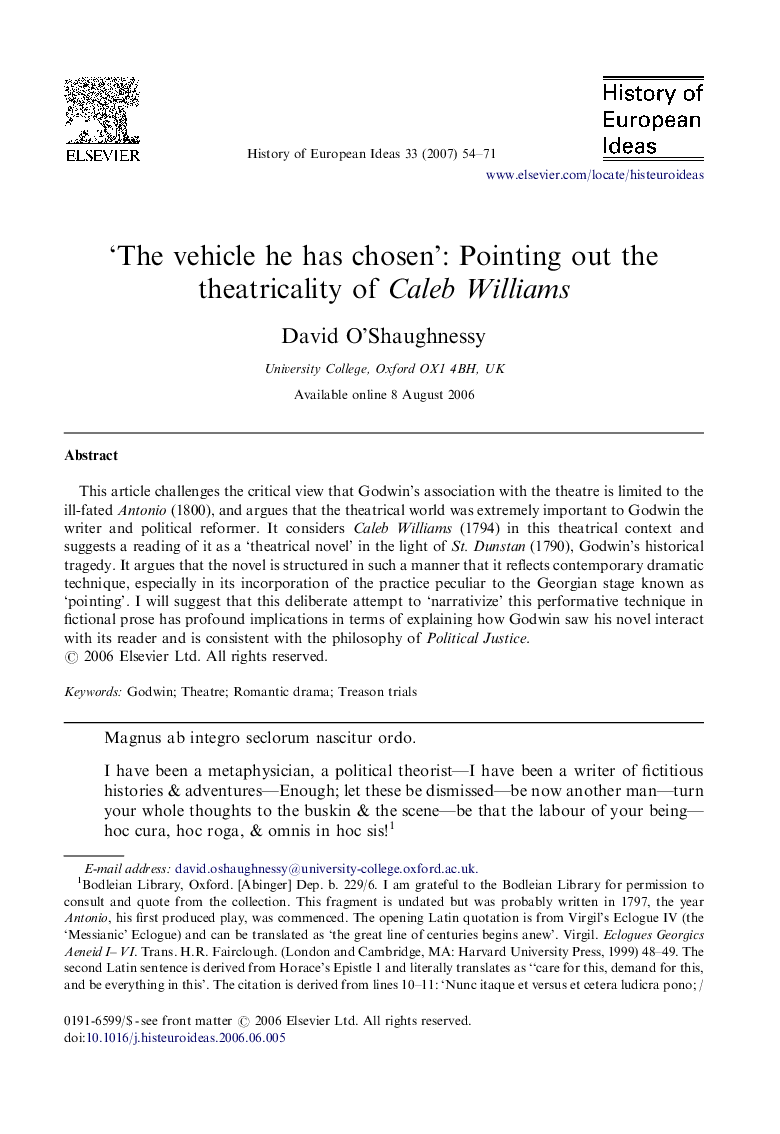| Article ID | Journal | Published Year | Pages | File Type |
|---|---|---|---|---|
| 1159238 | History of European Ideas | 2007 | 18 Pages |
Abstract
This article challenges the critical view that Godwin's association with the theatre is limited to the ill-fated Antonio (1800), and argues that the theatrical world was extremely important to Godwin the writer and political reformer. It considers Caleb Williams (1794) in this theatrical context and suggests a reading of it as a 'theatrical novel' in the light of St. Dunstan (1790), Godwin's historical tragedy. It argues that the novel is structured in such a manner that it reflects contemporary dramatic technique, especially in its incorporation of the practice peculiar to the Georgian stage known as 'pointing'. I will suggest that this deliberate attempt to 'narrativize' this performative technique in fictional prose has profound implications in terms of explaining how Godwin saw his novel interact with its reader and is consistent with the philosophy of Political Justice.
Keywords
Related Topics
Social Sciences and Humanities
Arts and Humanities
History
Authors
David O'Shaughnessy,
